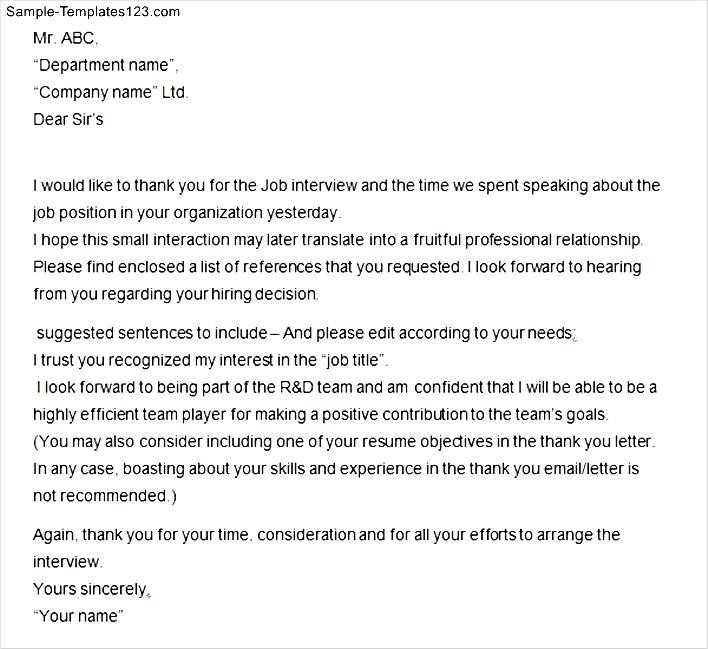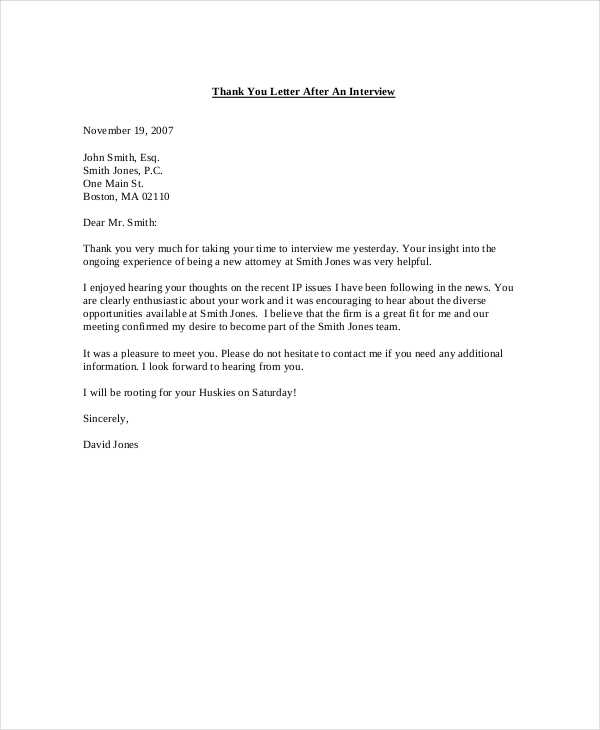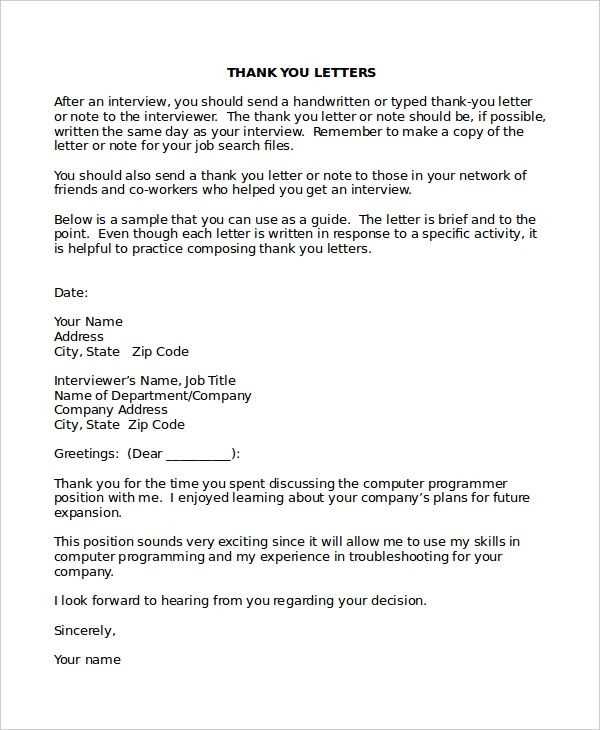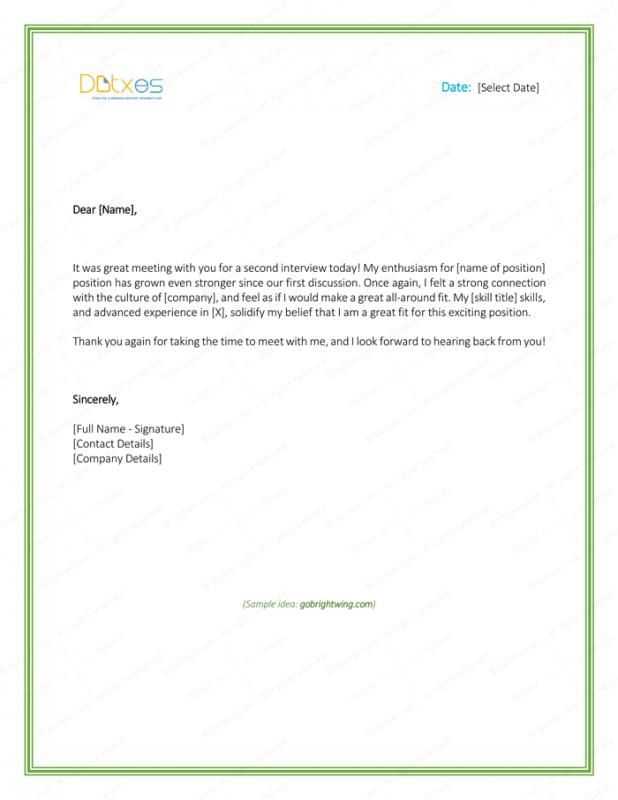Sample Thank You Letter After Interview Template

Sending a polite and thoughtful message after meeting with a potential employer is crucial. This gesture not only reflects your professionalism but also reinforces your interest in the position. A well-crafted follow-up note can make a significant impact and strengthen your candidacy. Understanding the key components and timing can ensure your message is both effective and well-received.
Why Sending a Follow-Up Matters
Taking the time to send a message demonstrates respect and appreciation for the opportunity. It shows that you value the time the interviewer dedicated to you and the organization. Additionally, it serves as a reminder of your qualifications, helping to reinforce why you’re the right choice for the role.
Structure of an Effective Message

Clarity and brevity are key. An ideal message should be concise, while still conveying gratitude and interest. Start by addressing the person by name, express your thanks, and briefly restate your enthusiasm for the role. Then, mention something specific from your meeting that reinforces your fit for the position. Finally, offer to provide additional information if needed.
Important Details to Include

- Personalization: Refer to specific points discussed during the conversation to show attentiveness.
- Gratitude: Acknowledge the opportunity to interview and express appreciation for the time given.
- Commitment: Reaffirm your interest in the position and your excitement about the possibility of contributing to the company.
Best Practices for Personalizing Your Message
Tailoring your communication to reflect the specifics of the interview is essential. This not only makes the note more meaningful but also reinforces your unique qualifications. Mention something personal about the interviewer or the organization that highlights your alignment with their values or goals.
Avoid Common Pitfalls

While crafting your message, avoid generic phrases or overused expressions. Ensure that your message is professional and free from spelling or grammatical errors. Don’t overdo it–keep the tone polite yet confident, and avoid being overly informal or too casual in your wording.
Timing Your Message
The timing of your message is equally important. Sending it within 24 hours of the meeting is ideal, as it shows promptness and keeps you fresh in the interviewer’s mind. If you wait too long, your message might lose its impact and relevance.
Effective Follow-Up Message Structure and Tips
Sending a well-thought-out message after a professional meeting can enhance your candidacy. It’s an opportunity to express gratitude, reiterate interest, and highlight the reasons why you are a great fit for the position. A concise yet personalized note can make a lasting impression and provide a subtle nudge in your favor.
Why a Follow-Up Note is Important
Demonstrating appreciation and reinforcing your enthusiasm for the role is essential. A personalized follow-up shows professionalism, strengthens your candidacy, and serves as a reminder of your qualifications. It can also set you apart from other candidates who may not take the time to follow up.
Crafting the Perfect Message
To structure a meaningful note, start with a clear expression of gratitude for the opportunity. Mention something specific from the meeting to show your attentiveness and genuine interest. Highlight your qualifications briefly and express your eagerness to contribute to the company. Keep the tone positive and confident without being overly effusive.
Personalizing your message can make it stand out. Reflect on key points discussed during your meeting, such as challenges the company is facing or specific skills you bring to the table. By referencing these points, you show that you were actively listening and that you understand the company’s needs.
Common Pitfalls to Avoid
While writing, avoid generic expressions that make your note feel impersonal. Ensure there are no spelling or grammatical errors, as they can undermine the professionalism of your message. Don’t overstate your case–your tone should remain polite and confident, not desperate or overly casual.
Timing is crucial–send your message within 24 hours to maintain relevance and show promptness. A delayed note might be perceived as less sincere, while a timely message will reinforce your genuine interest in the position.